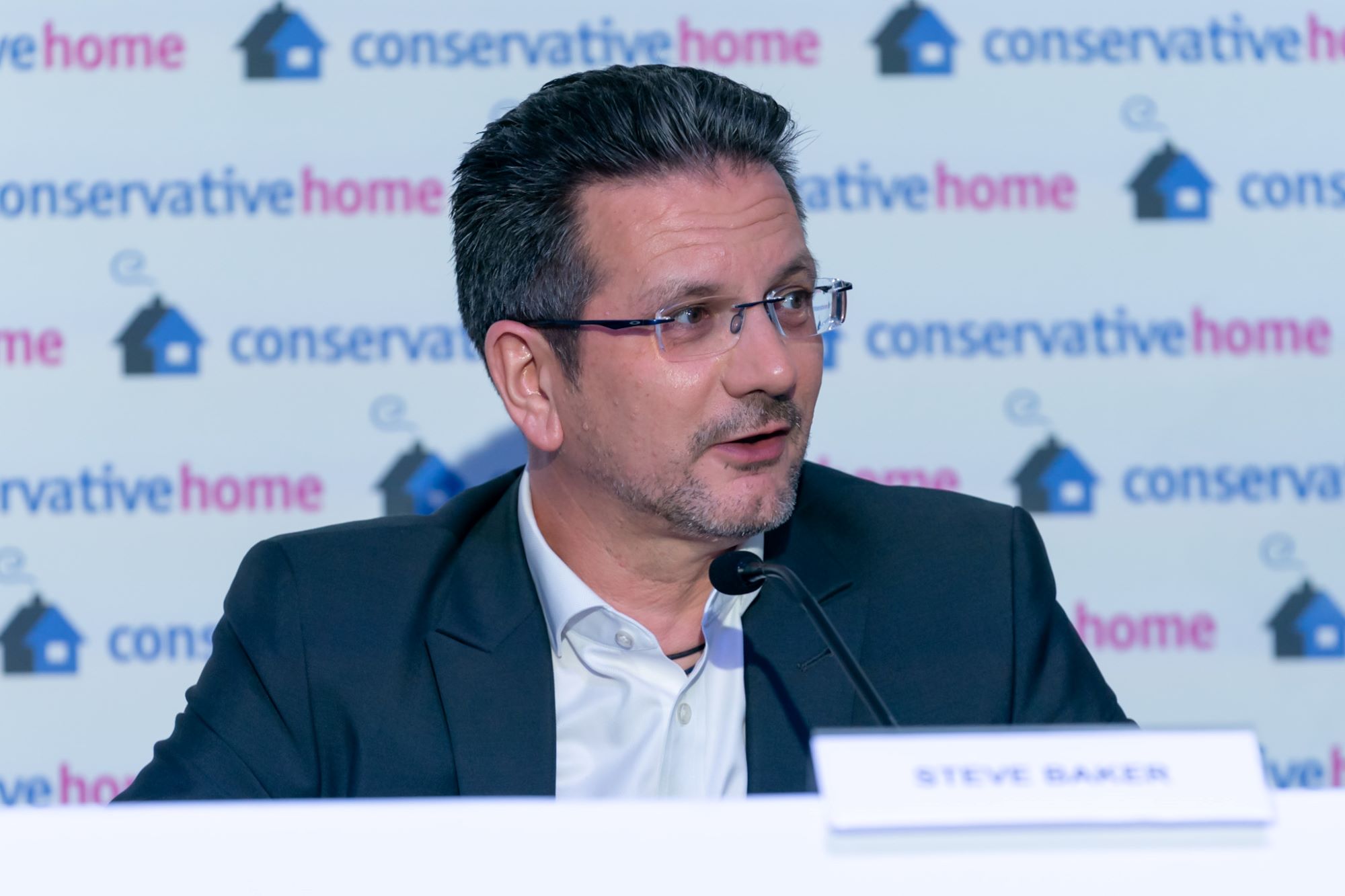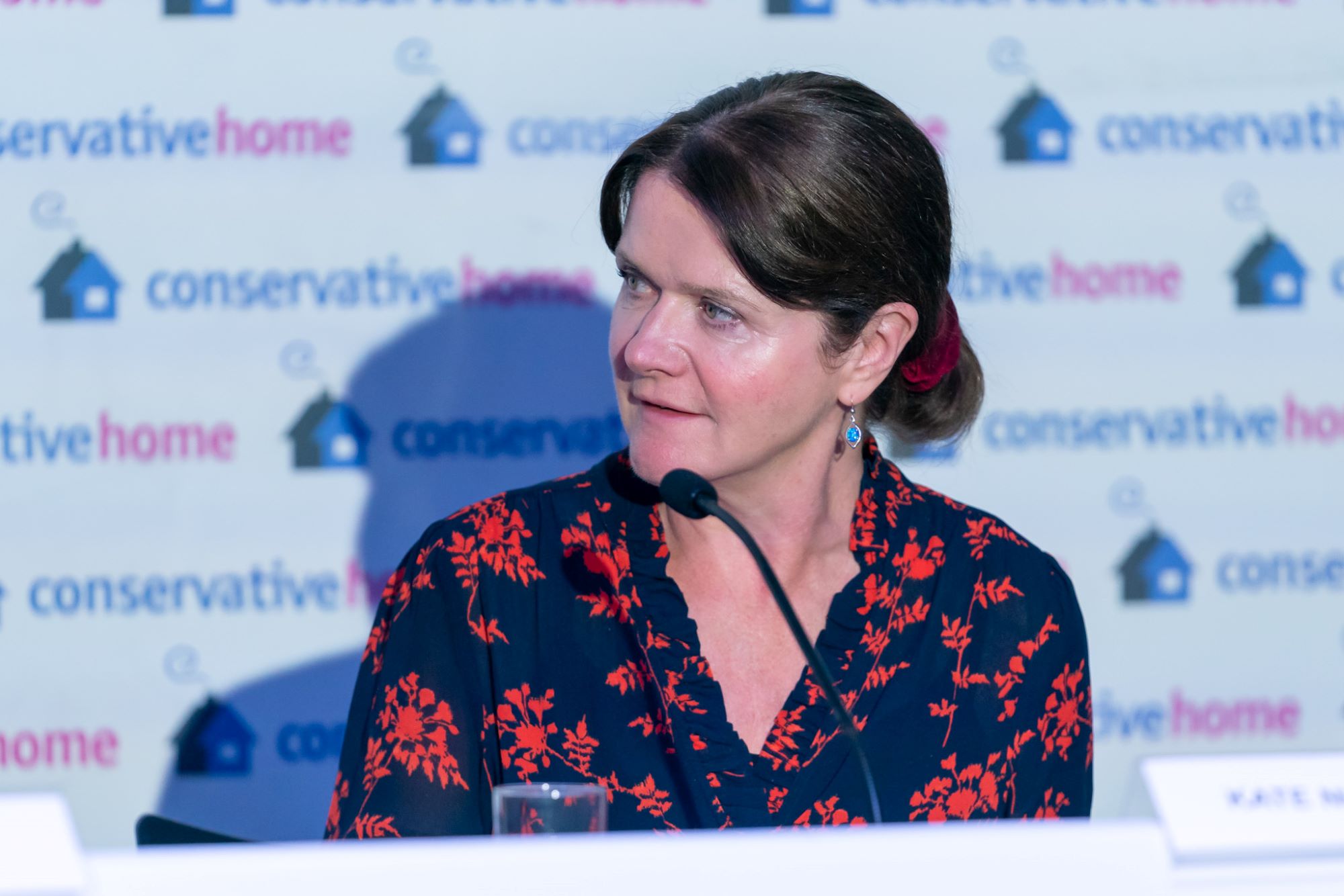No one left behind: towards a smoke-free future
Philip Morris Limited
| Philip Morris Limited
With declining smoking rates and reduced-risk products increasing in the marketplace, a smoke-free future may finally be within reach for the UK. A PMI-sponsored discussion at the recent Conservative Party Conference explored why pragmatism and collaboration must be key to delivering a smoke-free future.
If we are to achieve a smoke-free future, then we need to adopt a pragmatic approach that supports the UK’s 6 mil adult smokers1 to make better choices.
 Duncan Cunningham, Giles Dilnot & Steve Baker
Duncan Cunningham, Giles Dilnot & Steve Baker
This was the key message emerging from a lively debate at the recent Conservative Party Conference where the UK’s path to achieving a smoke-free future was discussed by an expert panel.
Chaired by Giles Dilnot, recently appointed Editor of ConservativeHome, the discussion took place in the context of increasing political activity to reduce the harm caused by smoking .
From the previous government’s plan to gradually raise the age limit for purchasing tobacco products, to recent announcements about smoke-free areas outside of pubs and public buildings, it seems that smoking is one area where sticks rather than carrots are favoured by policymakers.
However, expert voices on the panel cautioned that an approach based on prohibition alone is unlikely to achieve the smoke-free future that we all aspire to.
Former MP and Minister Steve Baker is one of those who believes that the current approach potentially goes against the grain of fundamental British values such as the freedom of adults to make informed choices.
 Steve Baker, former MP
Steve Baker, former MP
“The idea that we should add to the burden of the war on drugs by having a war on tobacco through prohibition is completely absurd,” he told the event. “I don't like to see people harming themselves, but let's not deny people agency.”
In addition to objections in principle to prohibition as a lever for change, other panellists highlighted the practical barriers to implementation for businesses.
Kate Nicholls OBE, Chief Executive of UK Hospitality, warned of the danger of new rules and regulations simply displacing the places where people smoke, creating new harms and new challenges.
“You have to have an acceptance that people are smoking and you need to have provision for those people,” Nicholls explains. “If you ban outside smoking, then the alternative will be that people will smoke in their homes or they will smoke and congregate in areas on the streets. That could potentially end up being more harmful.”
 Kate Nicholls, UK Hospitality
Kate Nicholls, UK Hospitality
As the person who speaks on behalf of the UK’s hospitality sector, Nicholls also called for policymakers to understand the potential economic impact of new legislation on a sector that is still struggling to recover following the COVID pandemic. She told the event that her members were estimating that a 20 per cent drop in revenues could result from an extension of the smoking ban to areas outside venues.
“There's no economic impact assessment that's come out alongside these latest announcements,” Nicholls said. “The hospitality sector generates 5 per cent of GDP and £54 billion in tax every year. What we don't want to do is impose something that would cause further economic harm on a sector that is so important.”
“Think about the innovation through vaping, heated tobacco products, or nicotine pouches. These are all regulated alternatives that have really helped adult smokers move to less harmful alternatives.”
Much of the focus of the discussion centred on alternative approaches that could more effectively achieve the shared goal of a smoke-free future. In particular, policymakers were urged to work with current smokers to develop solutions that worked for them.
Duncan Cunningham is Director of External Affairs for Philip Morris Limited, the UK affiliate of major tobacco company Philip Morris International. He argued that policymakers are ignoring the new opportunities to work collaboratively with a transformed industry encouraging smokers to switch to reduced harm alternatives.
 Duncan Cunningham, Philip Morris Limited
Duncan Cunningham, Philip Morris Limited
“What I've seen in my time in the industry is the huge impact that market forces have had,” Cunningham said. “Think about the innovation through vaping, heated tobacco products, or nicotine pouches. These are all regulated alternatives that have really helped adult smokers move to less harmful alternatives.”
Cunningham also echoed Steve Baker’s plea that policymakers recognise that the public should retain the ability to make informed choices.
“You have to give smokers a choice,” he explains. “Existing adult smokers need access to information and a full range of alternatives. And when regulation is formulated, it must be evidence-based. Because when reduced risk products hit the market, they are going to support adult smokers switching.”
Baker agrees and welcomes the proactive steps that an industry often seen as an enemy is taking to develop reduced risk products. These products, Baker argued, can support a transition away from the more damaging traditional ways that consumers use nicotine.
“I do really welcome Philip Morris International trying to create a smoke-free generation,” he said. “It's good that you want to produce alternative products. I think we've got to be really clear that people who are not harming someone else should be allowed to go their own way in peace.”
However, for that to happen requires a shift in methodology, with prohibition recognised as only one tool in a more sophisticated and inclusive approach. Key to that will be fostering dialogue that brings together industry, regulators, government, and other key stakeholders to recognise the shared outcome that all sides are seeking.
Cunningham is clear that the efforts and investments made by the industry provide hard evidence that his sector is no longer solely part of the problem. Instead, it should be seen as part of the solution.
“We’ve invested over £10 billion in reduced-risk products over the last few years,” he said. “We are very clearly trying to demonstrate by our investments and our actions that we are behind this transition.”
That industry transformation is creating new opportunities for collaboration and joint work to deliver a smoke-free future that will reduce harm and save lives. The hope is that outdated oppositional positions can begin to evolve into more constructive relationships to achieve the shared aim of a smoke-free future. That is the only way we will make sure that no adult smoker is left behind.
You can watch a livestream of the event here.
1. Adult smoking habits in the UK: 2023, ONS
